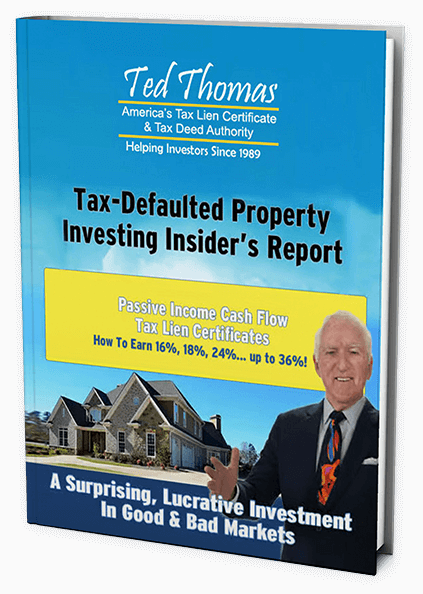What are Tax Defaulted Auctions? Tax-defaulted auctions are held by the local government when a property owner fails to pay their property taxes for an extended period. The governing authority has the legal right to sell these properties that have fallen into tax delinquency for public sale to recover the owed property taxes. The primary objective is to recoup the outstanding property taxes, so the starting bid for these auctions is typically low. This opens up a fantastic opportunity for investors like you!
There are several reasons why buying property through a tax-defaulted auction could be a smart move. First, you can often purchase properties at a steal, mostly below their market value—even when bidding against other investors! Secondly, these auctions can offer various properties, from residential homes and condos to commercial buildings and vacant land, giving you plenty of options and strategies to choose from.
Understanding the process of these auctions is crucial. Bidders must register in advance and typically pay a deposit. The bidding process varies by jurisdiction, with some auctions conducted in person and others online. Understanding payment terms is also vital, as some auctions require payment in full immediately, while others may allow time for the full payment.
Key Takeaways
- Understanding Tax-Defaulted Auctions: Tax-defaulted auctions are organized by local governments to recover unpaid property taxes, offering properties at low starting bids to recoup the debts.
- Advantages of Buying at Tax-Defaulted Auctions: Investors can acquire properties significantly below market value and choose from a wide range of property types with less competition.
- Auction Process: Registration and a deposit are required to participate in auctions, which may be conducted in-person or online.
- Finding Auctions: Information about upcoming tax-defaulted auctions can be found on local county websites and newspapers, with additional resources like Ted Thomas’ Interactive Magic Map offering a detailed nationwide directory.
- Educational Resources and Support: Ted Thomas provides a wealth of resources including webinars, workshops, and coaching to navigate the complexities of tax-defaulted property investments.

How Do Tax-Defaulted Auctions Work?
As mentioned earlier, the local government eventually takes action when owners fail to pay their owed property taxes. After multiple attempts to collect the overdue taxes, the local county may seize the property to reclaim lost revenues through a tax-defaulted auction. This is where you come in!
Here’s an outline of the procedure to make it easier to understand:
- Notification: The tax-delinquent property owner will be notified of any unpaid property taxes and given a period to settle them.
- Auction Announcement: The property is listed for auction if the taxes remain unpaid. You can find announcements on local government websites or in public records. This is where you start your due diligence. Determine if the property up for auction has the potential as an investment.
- Auction Type:
- Public Auction: Generally, this is an open bidding process where the highest bidder wins. The public auction type is also the most common.
- Sealed Bid: Bids are submitted confidentially, and the highest disclosed bid secures the property.
- Negotiated Sale: Occasionally, property may be sold through direct negotiation, often to a public agency or nonprofit.
- Starting Bid: The opening bid usually covers the back taxes owed, including any penalties or interest.
- Liens: Most private liens are wiped clean once the property is sold; however, some government liens may remain.
- Bidding Process: Interested bidders can typically participate in-person and online, placing bids on the offered property.
- Winning the Auction: If you win, you must pay the bid within 30 days (varies per state and per county). Upon payment, you will receive a tax deed.
Remember, it is crucial to research the property beforehand thoroughly. Tax-defaulted properties are sold “as is”, which can include existing conditions or additional liens that the new owner will be responsible for addressing.
How to Find Tax-Defaulted Property Auctions in Your Area
To successfully identify potential auctions, you can explore local resources and specialized tools designed for this purpose.
Local County Website and Newspapers
Your first step is to check your local county website. County governments typically list tax-defaulted property auctions in a dedicated section. These listings include essential details such as auction dates, property descriptions, and bidding procedures. Additionally, check local newspapers, as many counties are legally mandated to publish upcoming tax-defaulted property auctions in local publications. These notices are usually found in the legal section of the newspaper.
Ted Thomas’ Interactive Magic Map
Another powerful resource is Ted Thomas’ Interactive Magic Map. This tool streamlines the search for tax-defaulted properties across the United States. By simply clicking your desired state, the map instantly displays information on upcoming auctions and available properties, directly connecting you with tax-defaulted auctions nationwide. For more details, visit Tax Auctions Research – The Easiest Way to Find Tax-Defaulted Auctions.
Why Participate in Tax-Defaulted Auctions?
Now that you know where to find these auctions, you might be wondering, “Why should I even bother?” Well, there are some pretty sweet reasons to get involved in tax-defaulted auctions:
1. Acquire Multiple Properties at a Fraction of Their Market Price
Let’s start with the most significant reason. Since the starting bid starts at the owed property taxes, you can often snag properties way cheaper than you would through a regular real estate agent. In today’s crazy housing market, getting property at 10% to 50% of its market value is a major win!
2. High Potential Returns
Because you’re buying properties at a steep discount, there’s a chance for serious profit. This is especially true if you’re willing to do minor renovations to boost the property’s value. If you’re not into fixing up houses, no worries! If you’re not into fixing up houses, no worries! The Ted Thomas method is all about “wholesaling” tax deeds. For this method, you snag tax deeds at a low price and then sell them to someone else who wants to do the renovations. It’s a way to make some decent cash without getting your hands dirty and it’s less risky too! Since you’re not holding onto the property for long, your financial exposure is lower, and you won’t need to shell out more money to fix the place.
3. Variety is the Spice of Life
Tax-defaulted auctions aren’t just for houses. You can find all sorts of properties, such as condos, land, and even commercial buildings. This means you can pick and choose what best suits your investment plans, strategies, and risk tolerance.
4. Less Competition, More Opportunity
Tax-defaulted auctions are like a hidden gem in the real estate world. Since they’re less well-known than regular house listings, there are usually fewer people bidding, which means you have a better chance of getting a property at a bargain price.
5. Skip the Headache, Get the Keys Faster
Buying a house the regular way can feel like climbing a mountain of paperwork. With tax-defaulted auctions, things are way smoother. Here’s why:
- Reduced Purchase Time: Forget about months of back-and-forth. Getting the property in your name is a much faster process.
- Clear Requirements: You know exactly what you need to do to participate in the auction; there are no surprises or hidden hoops to jump through.
- Most Liens are Cleared: The auction process usually takes care of any legal claims or debts tied to the property, so you start with a clean slate.
Ready to Bid? Here’s How it Works
Are you interested in buying a tax-defaulted property? Awesome! Here’s a quick rundown of what you need to know before you raise your paddle:
Getting in the Game
- Eligibility Check: Make sure you’re allowed to participate. This usually means being old enough and not owing any property taxes yourself. You’ll also need to register for the auction online or in person before it starts.
- Show me the Money: Most auctions require a deposit to show you’re serious about buying. This deposit could be a set amount, like a few hundred, or a small percentage of the property’s starting price. You’ll also need to prove you have enough money to buy the property.
Choosing Your Battlefield: In Person or Online
- Live and in person: Going to the auction means bidding with others in real-time. This can be exciting but also a bit stressful. The fast-paced environment might cause you to get caught up in the moment and accidentally overbid.
- Chill and online: Many auctions allow online participation if you prefer to bid from your couch. This is super convenient; you can bid on properties even if you don’t live in the same state! Plus, bidding online makes it way easier to stick to your budget since you won’t get caught up in the heat of the moment.
Paying Up
- Time is money: If you win, you have up to 30 days (the exact deadline varies per state and per county) to pay the full amount for the property. Make sure you know the exact deadline so you don’t lose your deposit and the property!
- Payment methods: Many auctions accept only cashier’s checks or wire transfers, especially for online bids.
Do Your Homework Before Bidding!
It’s super important to do your research before participating in a tax deed auction. This will help you avoid nasty surprises and ensure you’re making a good investment. Checking things out beforehand can protect you from hidden problems and help you determine whether the property is worth it.
Check the Paperwork
- Title Search: This helps you determine if any claims, liens, or debts are attached to the property. Think of it like a background check for the land. These issues can mess with your ownership rights in California and many other states. Make sure you look at:
- Court Records: This reveals hidden problems, like unpaid bills or legal disputes.
- IRS Filings: This checks if the government has any claims on the property because of unpaid taxes.
Check Out the Property
- Visit the Property: See the property yourself to check its condition. This is super important whether you want to fix it up and rent it out, flip it for a profit, or use it for vacation rentals. Look out for:
- Damage: Are there any cracks, leaks, or other problems needing fixing?
- Usability: Can you use the property for what you want? For example, is it suitable for a vacation home?
Exit Strategy
Having a clear exit strategy is essential for success in acquiring tax-defaulted properties. Your options may include:
- Wholesaling: Selling the contract to another buyer for a fee.
- Flipping: Buying, renovating, and selling for a profit.
- Renting: Potentially after repairs to create a steady income stream.
- Vacation Rental: Especially if the property is in a high-demand vacation area.
Before bidding at a tax deed auction, ensure you’ve conducted thorough due diligence to avoid undesired surprises and secure a profitable investment. Proper research can safeguard against undisclosed liabilities and help confirm the property’s potential.
Frequently Asked Questions
What are the risks of buying at a tax defaulted auction?
The risks include buying properties with hidden costs like liens, existing damages, or zoning issues. It’s crucial to research thoroughly before bidding.
Can I inspect the property before bidding in a tax defaulted auction?
Typically, physical inspections of the property are not allowed. However, you can usually view the property from the outside. Detailed research and due diligence are recommended.
How often are tax defaulted auctions held?
The frequency of tax defaulted auctions can vary by jurisdiction. Some areas may hold them annually, while others might have them more frequently, depending on the volume of defaulted properties.
Can I lose money in a tax defaulted auction?
Yes, if due diligence is not conducted properly, investors can face losses. Risks include paying more than the property’s value, unforeseen legal problems, or significant property damage.
What happens to properties that don't sell at a tax defaulted auction?
Properties that don’t sell at the first auction may be offered in a subsequent auction, often at a lower minimum bid. If they still don’t sell, they may become government property or be offered for sale directly to interested parties.
Are tax defaulted auctions competitive?
Yes, these auctions can be highly competitive, especially when the properties involved are in desirable locations or priced well below market value.
What is a quiet title action, and should I consider one after purchasing at a tax defaulted auction?
A quiet title action is a legal process to resolve any disputes over the ownership of the property and clear the title of any liens or claims. It is often recommended after purchasing a property at a tax defaulted auction to ensure that the title is clear and marketable.
Can I finance the purchase of a property at a tax defaulted auction?
Typically, tax defaulted auctions require payment in full immediately or shortly after the auction. Financing through traditional mortgages is generally not possible at the time of purchase, so having ready funds is essential.
Easily Gain 30 Years Worth of Experience in Tax-Defaulted Auctions with Ted Thomas
Embarking on the journey of tax-defaulted property auctions can be daunting, but with Ted Thomas, you’re in capable hands. Ted’s expertise in the arena of Tax Lien Certificates & Tax Deed investing spans over three decades. This extensive experience is critical when navigating the complexities of acquiring properties through these auctions.
If you’d like to know more about tax-defaulted real estate investing, Ted Thomas provides full support and complete training with home study courses, Q&A webinars, live tutorials, workshops, web classes, personal coaching with certified coaches, and an interactive map and auction calendar research tool that allows you to visit each county online to find the details about upcoming auctions.
Start your money-making journey by attending Ted’s 6-Hour foundational training. Book your seat today to attend the Retire Rich From Home Virtual Workshop.
Want to earn massive income from bargain real estate investing? Would you like to buy mortgage-free properties for pennies on the dollar? Or earn double-digit interest rates secured by real estate? Then get started today by clicking the button below and get your FREE Insiders Report.




